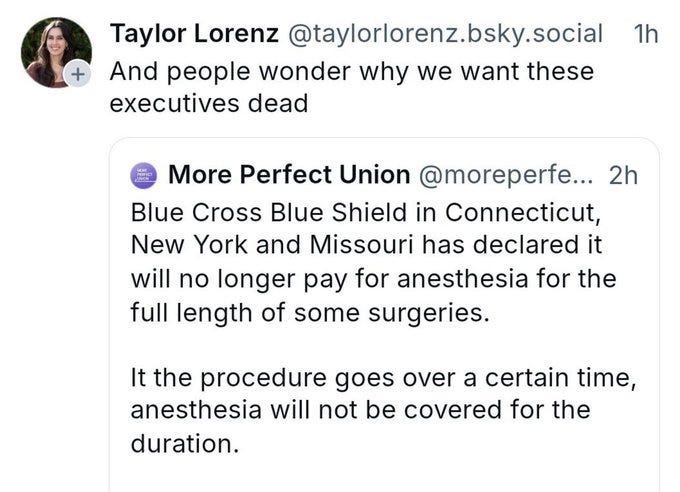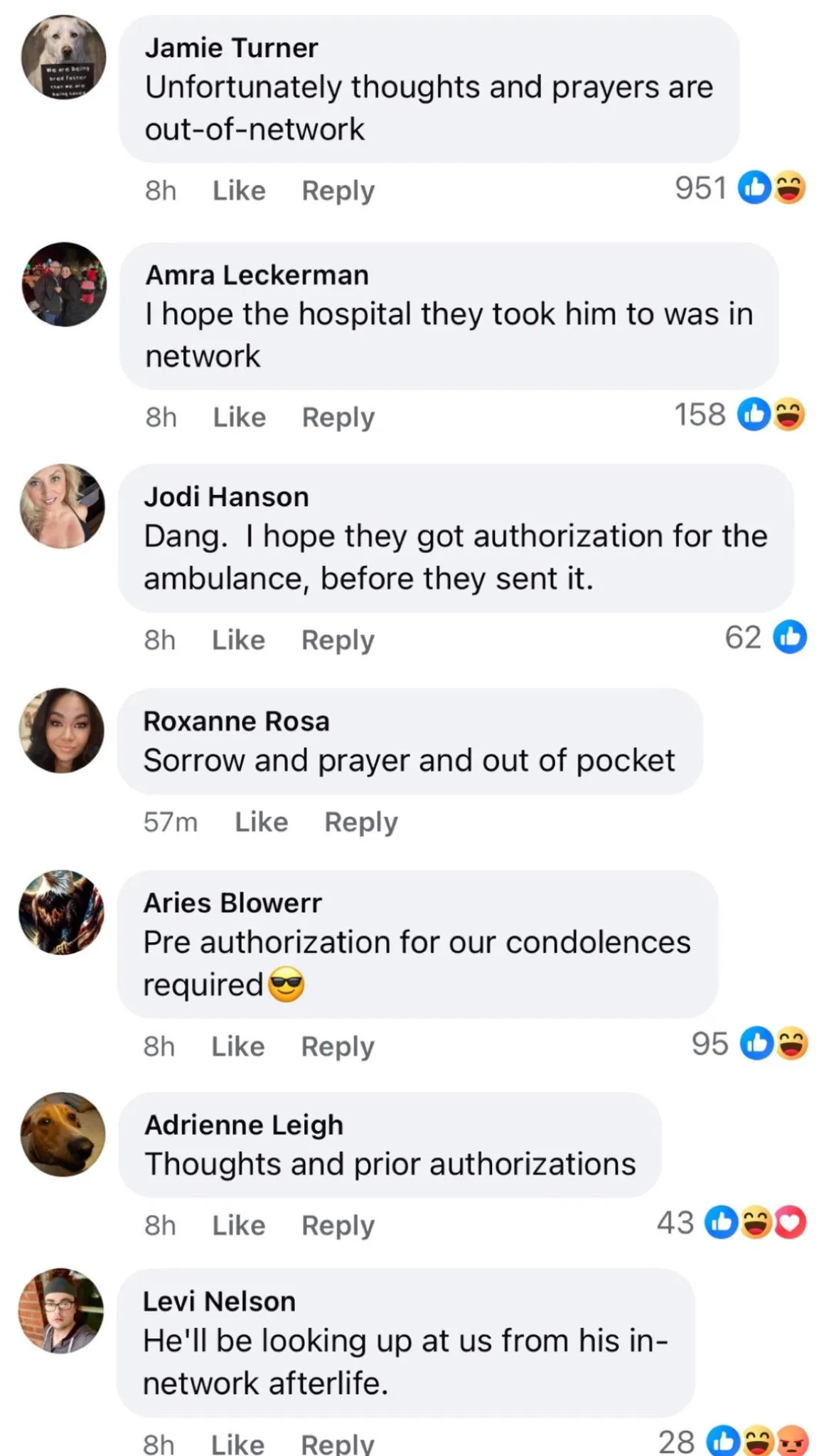This is where I share 3 things every week with my friends and anyone else interested.
—
A picture from my life:
This is the first floor of the new Eslite Spectrum in Xindian, New Taipei City. I like visiting Eslite to remind myself of what is possible in business. What is Eslite? Imagine a Barnes & Noble that not only didn’t get crushed by Amazon but thrived by transforming itself into a shopping mall for the kind of people who like bookstores. Everything from the design of the stores to the retailers they bring in to the non-book products they sell differentiate them from a generic mall to attract people who want the smart sophisticated taste associated with a bookstore, and every mall is anchored by one of their bookstores that still get a ton of traffic, making up 30% of their revenue. They’re known for operating the world’s first 24-hour bookstore, which is also how they built their brand.
A thing on my mind:
I used to follow a journalist named Taylor Lorenz. Earlier this month she posted this in the wake of the United Healthcare CEO shooting:
I was shocked. Our healthcare system is broken and people are angry, but are we at a point in human society where it’s okay to publicly imply support for murder? It’s disturbing (and yes, so is people getting denied life-saving coverage, but only one of the two feels like a new development).
Taylor Lorenz expounded on her post in her newsletter and went on Piers Morgan where she said she felt “joy” in the CEO’s murder, before walking it back later in the interview.
I understand her point. I love reading Internet comments, and the screenshot she shared contained the same comments I read following the shooting and honestly found morbidly funny.
I’m guessing Lorenz sees herself as the voice of the Internet. She got her start reporting from the formerly obscure corners of the Internet, like Tumblr, that were responsible for a lot of the dank memes that ended up permeating our wider culture. I get it when she says,
Let me be super clear: my post uses a collective ‘we’ and is explaining the public sentiment. It is not me personally saying ‘I want these executives dead and so we should kill them.’ I am explaining that thousands of Americans (myself included) are fed up with our barbaric healthcare system and the people at the top who rake in millions while inflicting pain, suffering, and death on millions of innocent people.
Part of the problem here is the Internet is longer just obscure. It’s obscure for some, and a massive stage for others, with the algorithm increasing elevating more content out of obscurity. Lorenz’s posts get millions of views, so her account definitely functions as a stage, and we expect people on stage to talk like they care about keeping our fragile society intact (same reason people find cable news and things Trump says dangerous), or at least give ample warning when trying to say something nuanced and potentially incendiary.
The other part of the problem is that words are both meaningful and meaningless at the same time, and the Internet accelerates both the conflation and dilution of meaning. Lorenz’s defense is that she is simply highlighting the sentiment of the Internet, suggesting we should treat the Internet like people say we should treat Trump, “take him seriously but not literally.” It’s serious but not THAT serious. But how were we supposed to know that? The contexts we typically use to figure out how to interpret things has collapsed and become meaningless, and so we’re left with just the words themselves.
The problem with just words is that they are rarely precise. Take for example of what a “college degree” means:
I was one of the people in college that switched from a harder major to an easier major, and yet I graduated with the same “Stanford degree”—as long as you don’t squint too closely. Just by saying those words, I can let you confer all of the positive associations onto me and adjust your behavior accordingly, even though in reality the words fail to communicate anything about the degree of my academic accomplishments (or lack thereof). Words suck, and yet we need them to understand the world, so there exists arbitrage opportunities. A small arbitrage is what I did: take the easy road to an undergraduate Stanford degree. A bigger arb would be taking a Stanford Online or a GSB Executive Education program and putting “Stanford” on your LinkedIn.
Politicians and businessmen arbitrage the meaning of words all the time. In order for ideas to build mass appeal, they have to lose resolution in order to co-opt all positive associations and elude all nuance. You have to turn them into a Rorschach test. “Immigration Reform” is good because it deports illegal criminals, or good because it ends all immigration into the country, or good because it more sensibly manages our borders, or good because it expands H1-Bs visas for top talent to join us? Yes.
I have a “meditation practice.” You might think I sit for a long time with a teacher, you might think I’m super zen, you might think I go on silent retreats. I’m not going to dispel you of any of those positive associations about my ability, but in reality I have a free Calm subscription through Kaiser and sometimes listen to a three-minute “meditation” while walking home. Calm as a business succeeded partly by co-opting the aspiration of people to meditate and diluting its meaning in the name of democratizing access. It’s not bad. I think it’s a net positive for the world but still doesn’t change the fact that being able to say “I meditate” or “I’m a meditator” without doing the traditional work associated is a big part of the appeal.
The Internet accelerates this by collapsing contexts, amplifying voices, obscuring identities, creating echo chambers of everyone who have the same answers to your Rorschach test, and adding a powerful incentive of “attention points” that you can convert into money. There are accounts that are obviously in the business of riling people up with engagement bait like @TylerDurden and @realDonaldTrump, and then there are accounts that are less obvious and more insidious, like someone using a real-sounding fake name—and again, Donald Trump. These engagement-bait accounts are “art imitating life,” but because we can’t tell what is real, we take the words at face value. Our reality warps, and life ends up imitating art. I’m worried words are just going to become more meaningless as this progresses.
A piece of content I recommend:
Shrinking Season 2 on Apple TV+
After season two this show it is joining the ranks of my favorite shows of all time! Up there with Mad Men, The Expanse, The Wire, Insecure, Dave, Silicon Valley, Sherlock, Narcos: Mexico, Ted Lasso. I think it’s as good if not better than Ted Lasso at delivering pleasant, light-hearted yet emotionally sophisticated television, but I prefer this Jason, his style of humor, and 30-minute episodes. Can’t wait to see how they do Season 3.
Bonus content: How did the first democracy die on Search Engine
We live in a democracy with all these rules that seem to barely work at best, and people often want to change the rules or dismantle it altogether in favor of something else. Hearing how the first democracy came about and went away was a good reminder of why we have what we have today and why it’s still so very fragile.
🤗
—
As always, you can find out what I’m thinking in more real-time on Twitter and my essays are on my website. My primary focus (and where I focus) is on Flow Club.








wonderful words here, Ricky. Thank you! ANd Happy New Year!